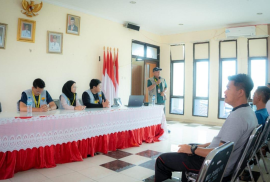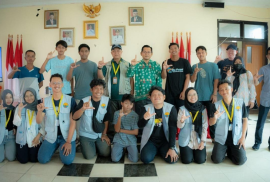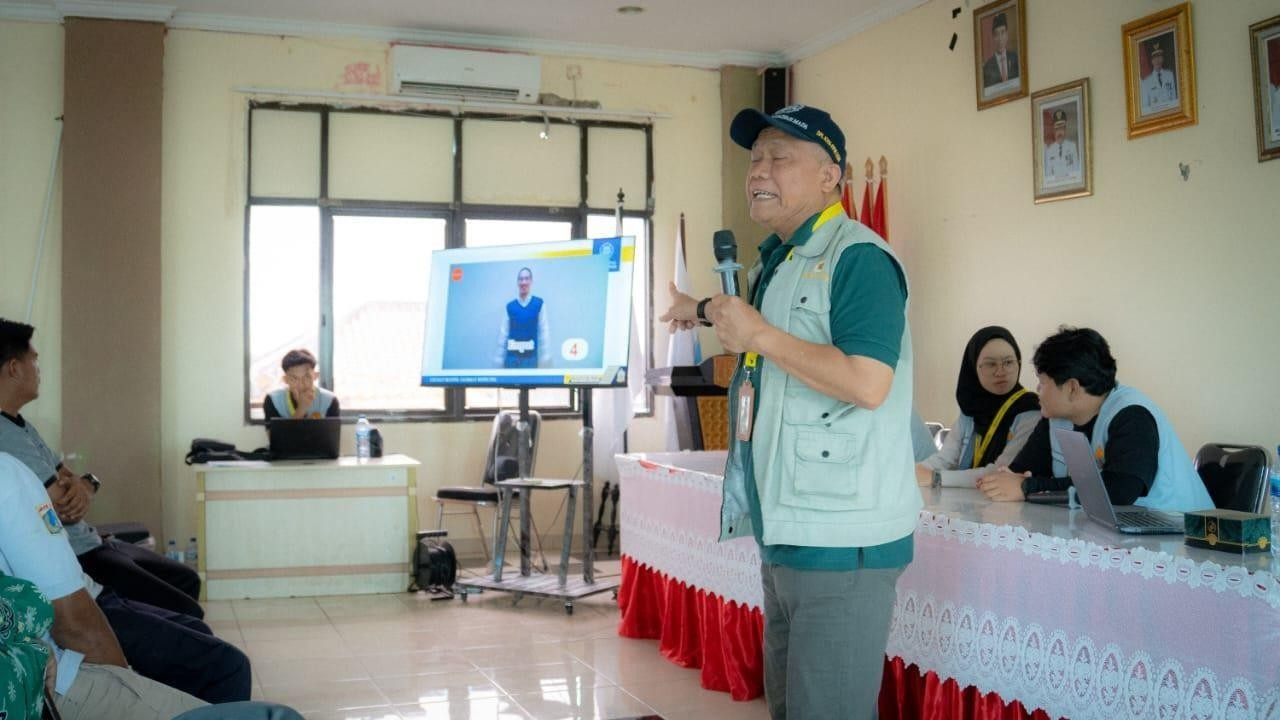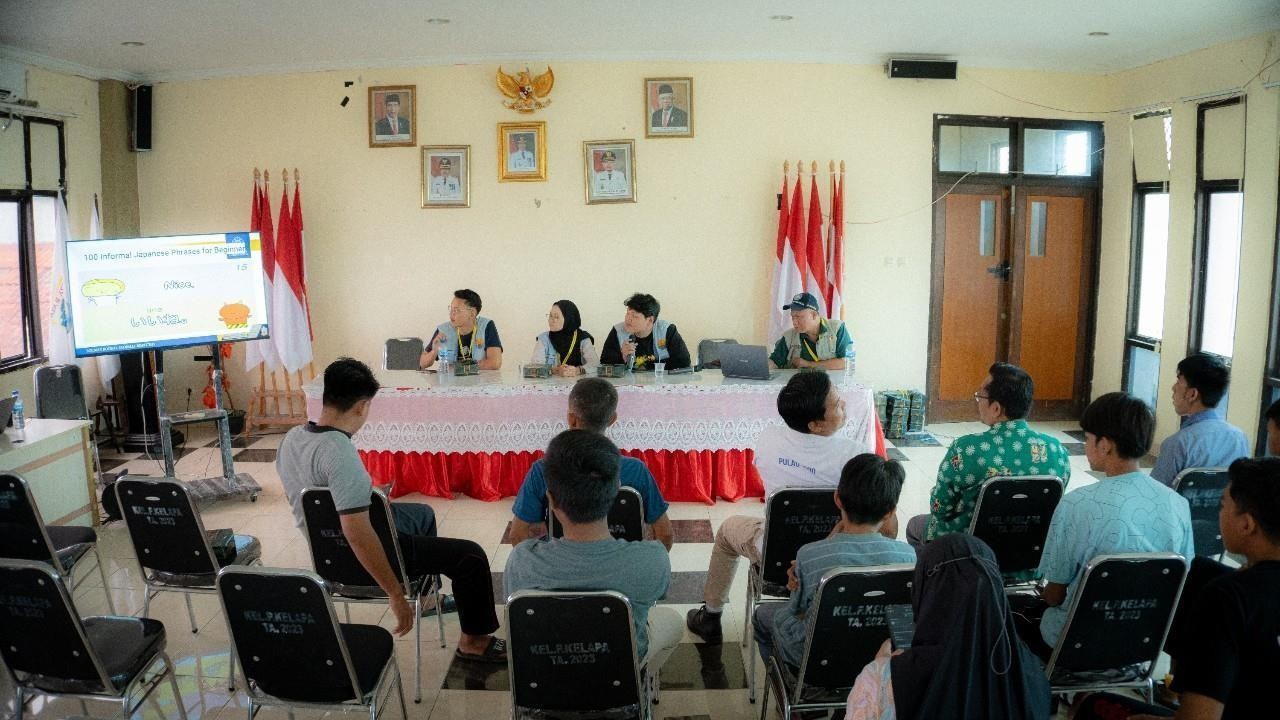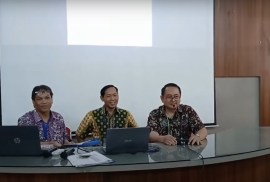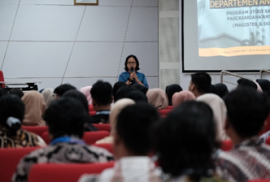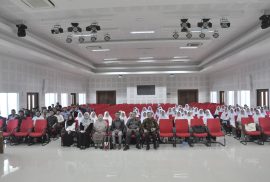On August 7, 2024, a significant educational event took place in the hall of Kalurahan Kelapa, located in Kalurahan Kelapa, North Thousand Islands Sub-district, Thousand Islands Regency, DKI Jakarta. This initiative aimed to improve the understanding of tourism and tourist characteristics among the local community, particularly the members of the Tourism Awareness Group (POKDARWIS) from both Kalurahan, namely Kalurahan Kelapa and Kalurahan Harapan. The event was organized in line with the Sustainable Development Goals (SDGs), emphasizing the importance of environmental preservation, basic education, ecosystem protection and ocean conservation.
The event began with remarks from local government representatives, who highlighted the important role of tourism in the local economy. Speakers emphasized that sustainable tourism practices are essential to maintaining the natural beauty and ecological balance of the islands. This is in line with the SDG goal to protect the environment and promote sustainable tourism.
After the opening remarks, a presentation on Tourism and Traveler Characteristics was delivered, which focused on various aspects of tourism, mainly marine tourism in accordance with the location of the venue, namely the sea and beaches of Harapan Island and Kelapa Island. Experts in the field shared insights on tourism and the characteristics of modern travelers, including their preference for green travel options and their growing awareness of environmental issues. This information is vital for local communities, as it helps them tailor their services to the expectations of eco-conscious travelers.
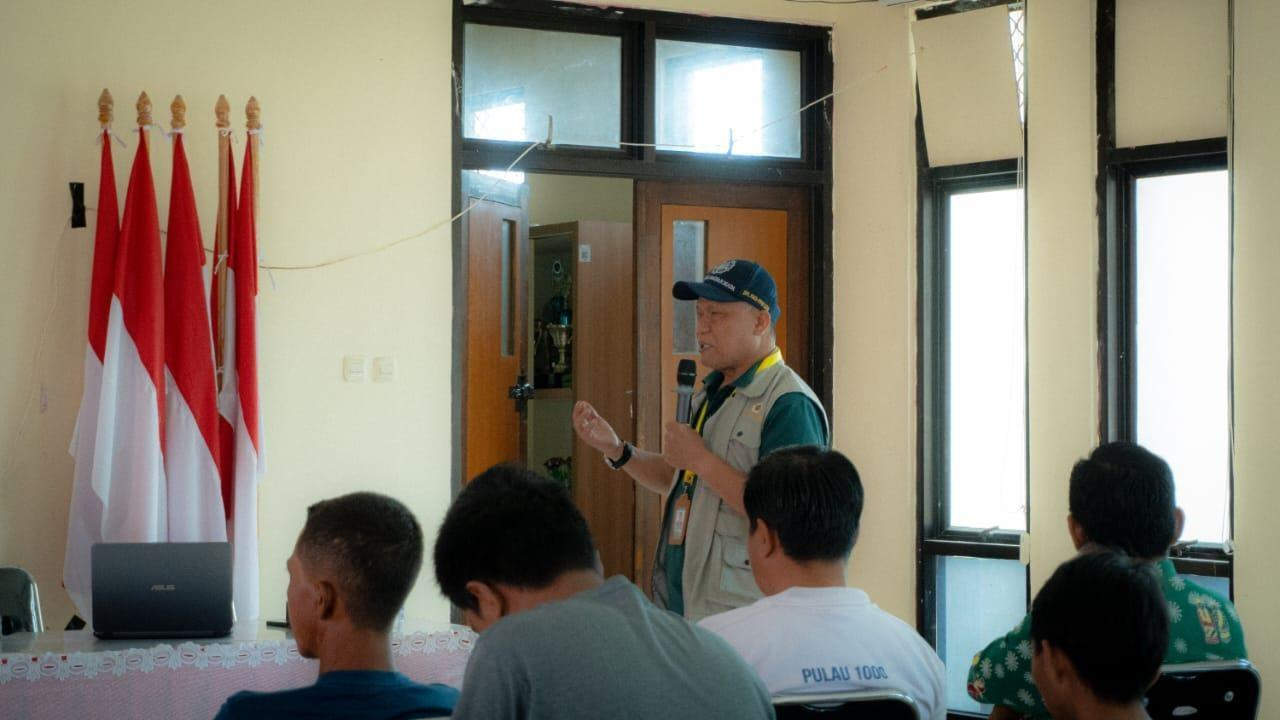
One of the key topics discussed was the importance of ecosystem protection. Participants learned about the delicate balance of marine ecosystems and the impact of tourism on these environments. The event emphasized the need for responsible tourism practices that minimize damage to local wildlife and habitats. This education is crucial to ensure that the natural resources of the islands are preserved for future generations.
In addition to ecosystem protection, the event also addressed the importance of ocean conservation. Speakers highlighted the threats posed by pollution and overfishing, urging communities to adopt practices that protect their marine environment. Local fishermen and tour operators were encouraged to participate in ocean conservation efforts, reinforcing the idea that healthy oceans are essential for sustainable tourism.
Educational sessions also included discussions on basic education of the ocean and its resources, as well as its role in promoting sustainable tourism. Participants are encouraged to engage in continuous learning and share their knowledge with others in the Pokdarwis community. This approach not only empowers individuals but also builds a culture of sustainability, particularly in the two aforementioned kalurahan.
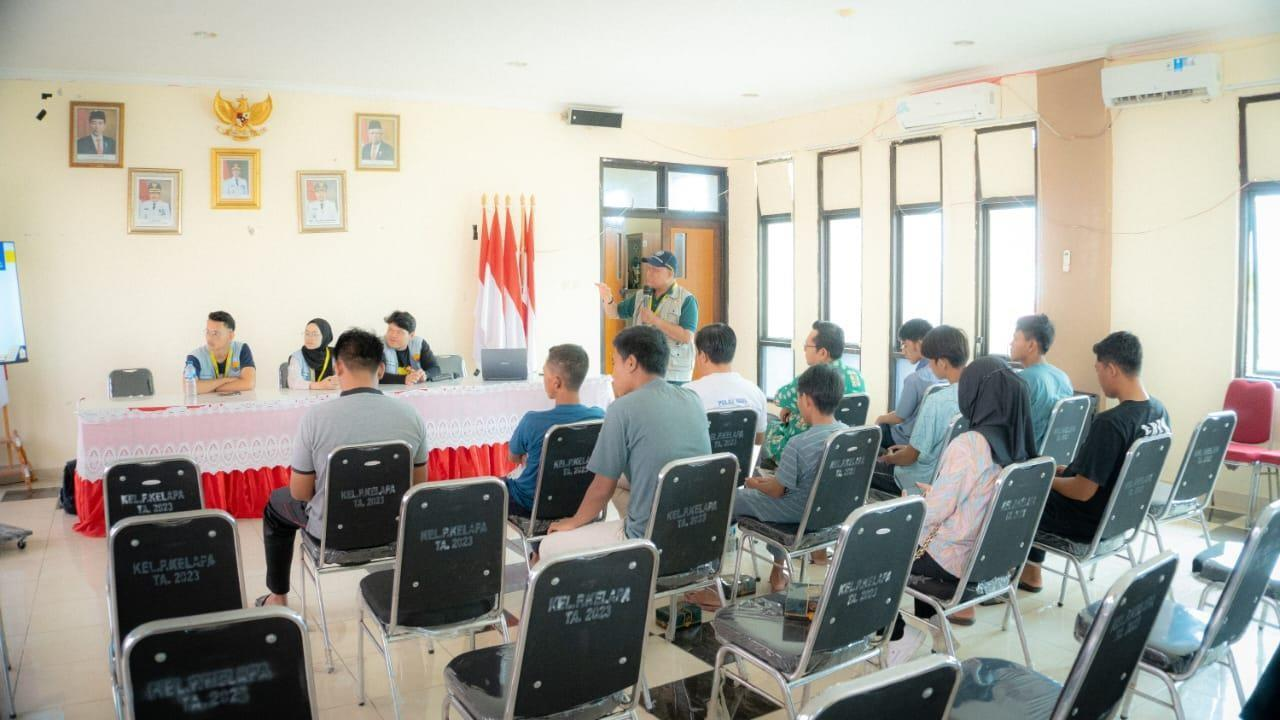
In subsequent sessions, participants engaged in interactive activities designed to reinforce the concepts learned during the presentation. These activities included discussions and Q&As, role-play scenarios, and demonstrations of sustainable tourism practices. The enthusiasm among participants was palpable, reflecting their commitment to becoming responsible stewards of the environment.
The event closed with a commitment from POKDARWIS members to apply the knowledge gained in their daily practices. They pledged to promote green tourism initiatives and educate visitors on the importance of protecting the local environment. This collective effort is a significant step towards achieving the SDGs related to environmental sustainability and community empowerment.
Overall, the educational event held at Kalurahan Kelapa Hall was an encouraging success. The event not only provided valuable information on tourism and its impact on the environment, but also built a sense of community responsibility towards ecosystem protection and ocean conservation. Local communities are now better equipped to welcome tourists while ensuring the preservation of their natural heritage.

